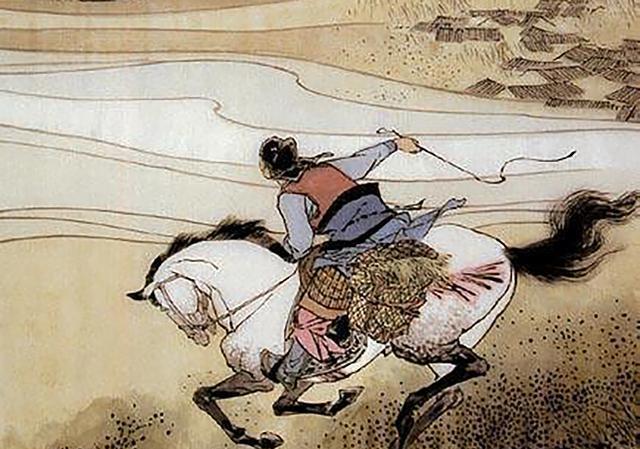
In ancient times, file transmission relied on post stations. Generally speaking, a post office is built every twenty miles. If there is a very urgent message, the staff will indicate the words "Fly now" on the official document that needs to be transmitted.
According to the requirements of most dynasties, such emergency documents stipulate three hundred miles per day, and in the event of a very urgent situation, they can be four hundred miles, six hundred miles a day, and the fastest is eight hundred miles.
When passing emergency documents, each transportation station uses only fast horses, and one horse is tired and rushes to replace the next, so that the maximum speed can reach a thousand miles a day. Generally speaking, people use "six hundred miles plus urgent" and "eight hundred miles urgent" to indicate the urgency of the situation.
So, what if you carry out such an important task as "eight hundred miles plus urgent", in case you are robbed by the enemy or robbers? In fact, the bandits never robbed the "eight hundred mile expedited" documents, they did not dare.
Starting from the Tang Law, there have been provisions to punish officials who have lost urgent cases. If the delay is an urgent military document, it is even more important to add three levels of crime. If a messenger loses the war because of a delay in the letter, he is sentenced to hanging, not to mention a bandit who robs urgent information.
History books once recorded such a story, an official in charge of issuing official documents, he handled a prisoner assigned from Hebei to Lingnan, should have been sent to Hebei and Lingnan, due to night negligence, Hebei documents were lost on the way to send letters. After the incident, the official was dismissed because of this special situation.
The law treats officials so harshly, and the bandits are even more severe. Generally speaking, the local government treats bandits in the wilderness with one eye turning a blind eye, and if the robbers and bandits rob the emergency documents distributed by the imperial court, then this matter is not a problem for the local government, and the central government will send special troops to hunt down and kill these thieves.
Therefore, the average robber will not touch these important documents, so as not to provoke the official desperately to kill. Moreover, the bandits are not rebels, they occupy the mountains and become kings and want only gold, money and treasure, these official documents are worthless in their eyes, and naturally they will not spend time and effort to intercept them.
In the wartime, the messenger is deterred by the law, naturally do not dare to send the urgent mail out casually, should have expected that the enemy may fight ambush interception intelligence, at least through various methods to let many people carry documents just in case, and some stations will go to the local government to borrow some troops to send these urgent information to each other.
It can be seen that although the ancient information network is not developed now, it is still time-efficient. According to relevant records, during the Tang Dynasty, there were already more than 1,600 post stations in the Central Plains, and there were more than 20,000 people specializing in information transportation, of which 17,000 were running errands.
And the road between each transportation point is also rich and diverse, land and water transport are very convenient, there are multiple programs for transport personnel to choose, is a complete set of information system.
Those who serve in various transport points are collectively known as "Yi Ding" or "Yi Li". From these names we can see how inferior their status is.
Most of these people are landless and industrial wanderers, whether under the scorching sun, or in the cold and windy winter, or in the pouring rain, they all have to carry their bags of paperwork and rush on the road without exception.
It is also such a person who can give up his life in the face of bandit robbery and protect the safety of escort information. They face not only harsh working conditions, but also oppression from their superiors.
The penalties for all kinds of mistakes in the postal process are very detailed in the law, and these people are severely punished for the slightest mistake. If they delay the journey on the way because of special circumstances, and should have departed on time but went against the plan, they would have to be hit by a hundred times.
Late delivery of letters, delay for a day to hit eighty boards, and so on, many people suffered from this rule and died. The bandits are also mostly poor people who are desperate, and they also understand that the life of the yiding is not easy, and naturally they will not let go of the rich people's carriages and horses, and they will not be able to live with the people of the lower society like themselves.